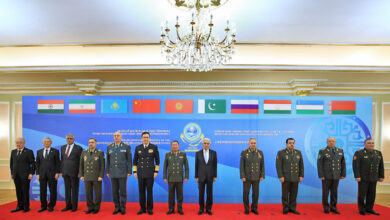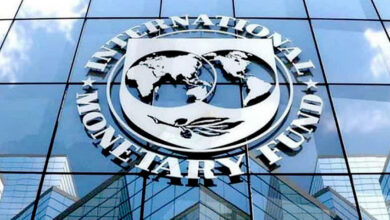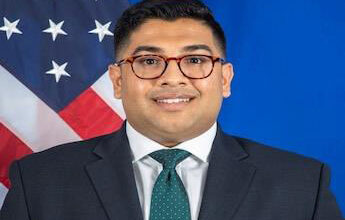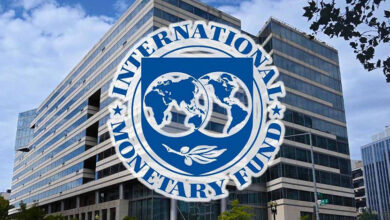India’s Republic Day guest: Crowning relations with UAE
New Delhi. Ever since the late Prime Minister Indira Gandhi visited Abu Dhabi in May 1981, the UAE has been high on New Delhi’s agenda for promoting bilateral relations, particularly as both the countries share a liberal approach in foreign relations as also the concern that peace and stability in the Gulf region are linked to peace and stability in South Asia.
 President Shaikh Zayed bin Sultan al Nahyan, who had hosted Mrs Gandhi, did visit New Delhi in April 1992 after several changes in the Indian political landscape, and received a tremendous compliment from Indian President R Venkatraman who called him a saintly statesman. The visiting President, whose country was getting richer by the day due to oil revenues, believed in developing his country for everyone’s good and maintaining peace in the region.
President Shaikh Zayed bin Sultan al Nahyan, who had hosted Mrs Gandhi, did visit New Delhi in April 1992 after several changes in the Indian political landscape, and received a tremendous compliment from Indian President R Venkatraman who called him a saintly statesman. The visiting President, whose country was getting richer by the day due to oil revenues, believed in developing his country for everyone’s good and maintaining peace in the region.
His son, Shaikh Mohammed bin Zayed al Nahyan, who headed the armed forces earlier and is now the Crown Prince of Abu Dhabi and Deputy Supreme Commander of the UAE armed forces, has visited India a couple of times earlier, signed a bilateral agreement on security cooperation in 2003, and is now appropriately the Chief Guest at India’s Republic Day Parade and celebrations on January 26.
Prime Minister Narendra Modi’s visit to Abu Dhabi in August 2015, the very warm welcome he received from the Crown Prince, and now his return visit, signify the clear interest both the countries have in enhancing political and diplomatic relations.
It is appropriate here to recall the Joint Statement issued at the end of Mrs Gandhi’s visit: The Security and Stability of the Indian Subcontinent and the Gulf region are interlinked.That perspective stays. The invite from New Delhi is not ceremonial, but an expression of India’s sustained intent to strengthen ties with the UAE, which by itself has earned tremendous respect in the Arab world.
Notably, Shaikh Mohammed will be the second leader from the Gulf to be the chief guest at the Republic Day parade, after King Abdullah of Saudi Arabia in 2006.Sources have told India Strategic that the increasing closeness with the UAE, marked by a spate of recent high-level engagements, is intended to culminate in the formal raising of ties to the strategic level. Some arrangements on defence cooperation are likely.
A colourful aspect of the UAE leader’s visit is the participation of a marching contingent from the UAE armed forces in the parade, marching alongside the Indian troops. Live telecast of the parade will be available to viewers in the UAE and Gulf countries.
It may be kept in mind that Indian Air Force (IAF) has already conducted a couple of joint exercises with the UAE Air Force in the past while Indian naval ships have periodically been visiting Dubai and Abu Dhabi for nearly three decades now.
The practice of foreign contingents in India’s R-Day parade, as it is called, was launched last year when a French marching band joined forces with Indian marching bands to honour the presence of French President Francois Hollande, the Chief Guest at the 2016 parade. So, it will be only the second time in 68 years (1950, the first Republic Day, inclusive) that a contingent of foreign troops will be marching in the parade.
The UAE actually wanted to send paratroopers, but the Indian ministry of Defence, which organises the event, informed Abu Dhabi that the security manual does not permit even low-flying aircraft at the parade venue due to security reasons. Only a fly past by IAF jets and helicopters are permitted over the Raj Path, the presidential boulevard.
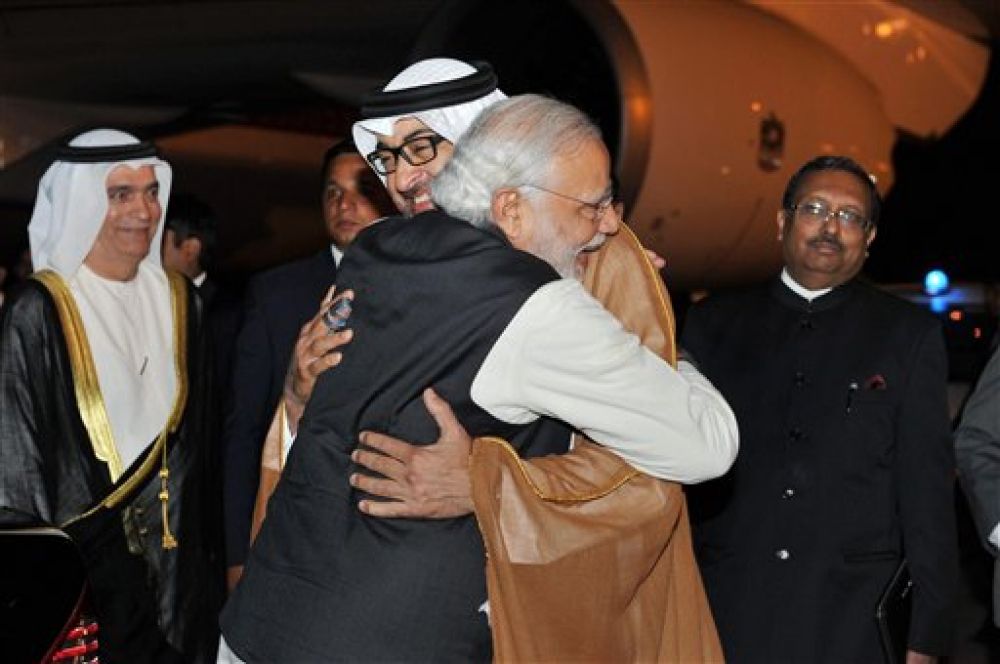
The Crown Prince is scheduled to arrive in New Delhi on January 25 for the state visit. He will meet with Prime Minister Narendra Modi for detailed discussions, one-on-one and with their respective delegations, the same day.
Terrorism and infrastructure funding will be two key items on their agenda, sources told India Strategic.Shaikh Mohammed will attend the Indian President’s ‘At Home’ get together; and also meet Vice President M Hamid Ansari and political leaders. Mr Ansari is also a former ambassador to the UAE.
Shaikh Mohammed is also scheduled to speak at a meeting of the chambers of commerce and industry on January 27, before he returns home.
During Mr Modi’s visit to the UAE, the two countries had, in what was seen as a breakthrough, condemned efforts, including by states, to use religion to justify, support and sponsor terrorism against other countries, or to use terrorism as an instrument of state policy. They had also decided to strengthen their counter-terrorism cooperation. The UAE has closely collaborated with India in this field for many years.
Another vital component of bilateral relations is trade. The UAE is India’s third largest trading partner after China and the United States. Bilateral trade between the UAE and India is around $60 billion.The visit of the Crown Prince will see India and the UAE raise their bilateral relationship to a truly strategic partnership.Before the Crown Prince’s arrival, the two countries will hold a dialogue on strategic relations on January 20, between India’s Minister of State in the Ministry of External Affairs (MEA) M J Akbar and, Minister of State for Foreign Affairs of the UAE Anwar Mohammed Gargash.
The two countries have moved significantly closer on security, counter-terrorism and intelligence sharing, all of which will form part of the dialogue.
It may also be recalled that some plans were initiated during Mr Modi’s visit to Abu Dhabi and Dubai in August 2015 for UAE’s investment in Indian infrastructure. These will be followed up. “The joint statement during the visit of Prime Minister to the UAE in August 2015, mentioned the establishment of UAE-India Infrastructure Investment Fund, with the aim of reaching a target of $75 billion to support investment in India’s plans for rapid expansion of next generation infrastructure, especially in railways, ports, roads, airports and industrial corridors and parks,” an official statement had said. Energy security, including filling the Indian strategic reserve and investing in downstream projects, is on the agenda.
The Gulf region is also home to more than seven million Indians. During 2015-16, India’s exports to GCC (Saudi Arabia, UAE, Oman, Bahrain, Kuwait and Qatar) countries were $41.71 billion.


